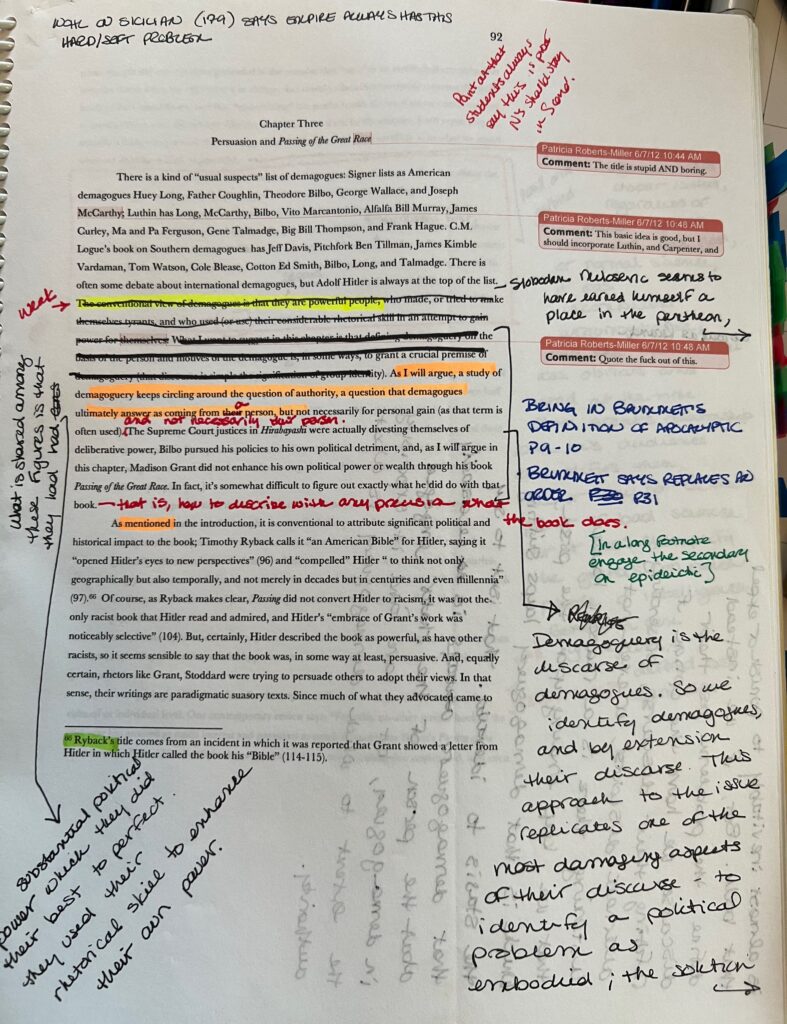“The most unreliable indication of whether your writing is good or bad is how you feel about it.” Susan Wells

I’m in the process of significantly rewriting an article (based on readers’ comments), and last night I dreamed that I wanted to get to the top of a building, and I couldn’t find the right way to get there. I kept taking stairs that led me elsewhere. Some of those other places were interesting, and some were dreary, but they weren’t where I was trying to go. I often have dreams like that when I’m in the Slough of Despond stage of a writing process.
A friend mentioned that when she is writing, she has dreams about trying to drive a vehicle that is too big, unfamiliar, or unwieldy.
When I was writing my dissertation, I had moments of thinking that I couldn’t possibly write a dissertation, but I did. At several points in every writing project I have found myself convinced I can’t do it, there’s no point in my doing it, and all my previous successes were meaningless flukes. It’s much like the Slough of Despond in Bunyan’s Pilgrim’s Progress:
This miry Slough is such a place as cannot be mended; it is the descent whither the scum and filth that attends conviction for sin doth continually run, and therefore is it called the Slough of Despond: for still as the sinner is awakened about his lost condition, there ariseth in his soul many fears, and doubts, and discouraging apprehensions, which all of them get together, and settle in this place; and this is the reason of the badness of this ground.
Pilgrim’s Progress is a (very boring) book about the soul’s progress toward salvation, told in the form of “Christian” and his travels/travails. Initially, Christian is travelling with someone called Pliable, and they both fall into a bog. Pliable at that point gives up the journey entirely,
and angrily said to his fellow, Is this the happiness you have told me all this while of? If we have such ill speed at our first setting out, what may we expect between this and our journey’s end? May I get out again with my life, you shall possess the brave country alone for me. And with that he gave a desperate struggle or two, and got out of the mire on that side of the slough which was next to his own house: so away he went, and Christian saw him no more.
Christian gets help, appropriately enough from someone named Help, who explains that there are ways out of the bog, but it is despair itself that traps travellers.
I’m writing this because I wish it’s something that I had understood as a junior scholar. There may be people out there for whom writing a lot is a necessary part of their profession and who find it easy, or who go from start to finish on a project without falling into a bog, getting lost in a building, or driving a vehicle that just isn’t working the way it should. But I don’t know them.
The only way out of the bog is through. The moment of loss of confidence isn’t a moment of truth (although some of the insights I have in those moments are true—the introduction of this article really does suck pretty hard); it’s just a moment.
